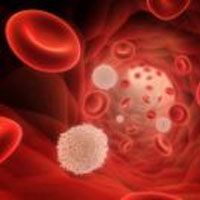Article
Epoetin Alfa Biosimilar Increases Hemoglobin Levels in Anemic Patients Undergoing Chemotherapy for a Lymphoid Malignancy
Author(s):
Analysis of study data from patients in real-world clinical setting showed a rapid increase in mean hemoglobin levels in this patient population, often as early as 3-4 weeks following initiation of treatment.

Patients with anemia caused by chemotherapy for lymphoid malignancies did well with a biosimilar epoetin alfa product (Binocrit/Sandoz) French researchers report.
In an abstract presented at the American Society of Hematology Annual Meeting, Dec. 5-8 in Orlando, FL, Lionel Karlin of the Service d’Hematologie, Centre Hospitalier Lyon Sud, in Pierre-Benite, France and colleagues reported on results from the OncoBOS study, a prospective non-interventional study of the drug in a routine clinical practice setting. Patients had low hemoglobin (Hb) levels due to chemotherapy for lymphoma. The drug is intended to reduce the need for red blood cell transfusions in these patients. It is delivered by injection.
Of 563 patients treated at 34 sites from September 2011 to July 2014 about half had non-Hodgkin lymphoma (281 patients). Another 165 patients had multiple myeloma.
After taking the drug weekly their mean baseline Hb of 9.5 g/dL was increased by an average of 0.9 g/DL after one month of treatment and by an average of 3 g/dL after three months of treatment. Patients were treated for an average of 10.8 weeks
There were no treatment-related adverse events.
The researchers concluded that “in real-life clinical conditions, Binocrit increases effectively Hb without any adverse drug reaction in anemic patients with lymphoid malignancies, whatever chemotherapy [they] received.” The effect appears rapidly, they noted, “with mean hemoglobin increase of 0.9 g/dL seen as early as 3 or 4 weeks following the start of therapy.”
The drug already has European approval for treatment of anemia caused by chronic kidney disease. It is similar to Janssen’s Eprex.
Sandoz is conducting a phase III trial of this biosimilar product in the US.
Erythropoietin is a glycoprotein hormone produced primarily by the kidney in response to hypoxia and is the key regulator of red blood cell production.



